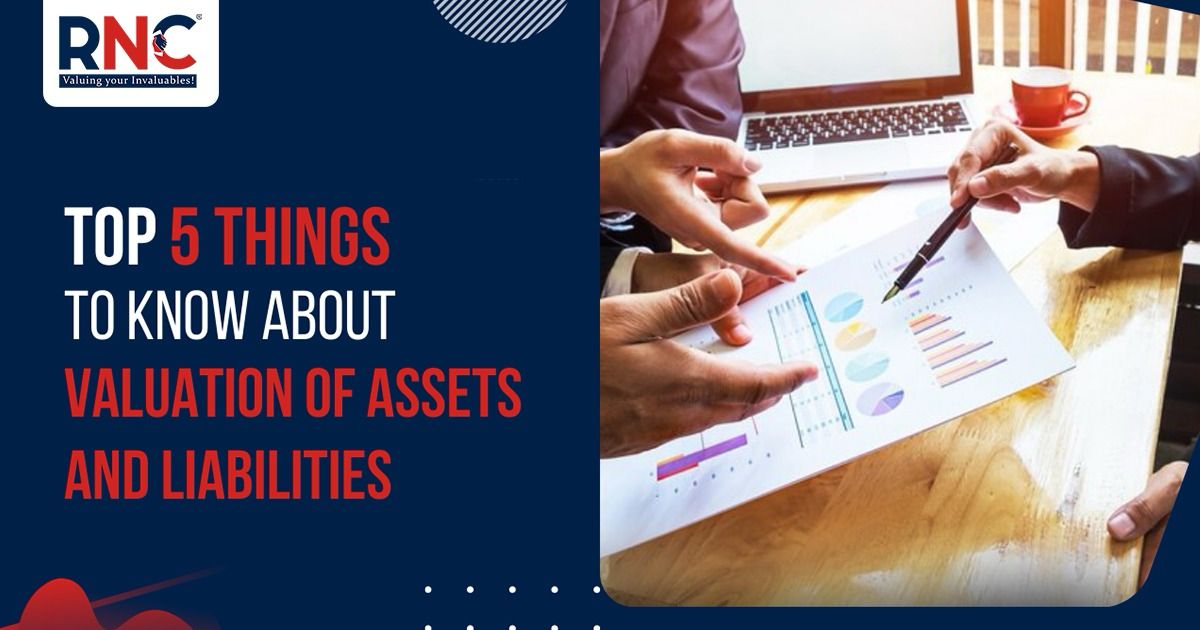
The valuation assets and liabilities are necessary for various financial dealings that demand trust, transparency, and accountability. Whether it’s about investment opportunities, financial reporting, or strategic planning, having reliable asset valuations allows stakeholders to make choices based on solid information.
Valuations the process of determining the monetary value of assets and liabilities. It involves assessing various factors to determine how much an asset, like a commercial setup, or liabilities, like a company’s debts or obligations, is worth in terms of money.
In this blog, we will explore five important facts about the valuation of assets and liabilities.
1. Importance of Accurate Valuation
Accurate valuation is crucial to an organization’s financial stability and strategic decision-making. Whether a multinational corporation or a small business, the true value of assets and liabilities influences key decisions such as mergers, acquisitions, investments, and financial planning. Reliable valuation gives stakeholders a clear picture of an entity’s financial position, fostering trust and confidence.
2. Regulatory Compliance and Standards
The valuation of assets and liabilities are subject to a myriad of regulations and accounting standards. Compliance with these regulations, such as International Financial Reporting Standards (IFRS) or Generally Accepted Accounting Principles (GAAP), is crucial. These standards ensure consistency, comparability, and transparency in financial reporting, enabling stakeholders to assess an organization’s financial performance on a level playing field.
3. Methods of Valuation
Valuation methods can vary depending on the nature of assets and liabilities. Common approaches include market value, income-based, and cost-based methods. Market value considers current market conditions, income-based methods assess potential future cash flows, and cost-based methods evaluate the original cost or replacement cost of an asset.
Employing the appropriate valuation method depends on the type of asset or liability and the industry in which the organization operates. It further guarantees the accuracy of reported financial information, providing stakeholders with a comprehensive and trustworthy understanding of the entity’s fiscal health.
4. Risk Management and Mitigation
The valuation process also serves as a tool for identifying and managing financial risks. Understanding the risks associated with assets and liabilities is essential for making informed decisions. By conducting thorough valuations, organizations can identify potential risks, such as market volatility, credit risks, and liquidity concerns. This knowledge empowers stakeholders to implement risk mitigation strategies and ensures the resilience of the business in the face of uncertainties.
Read More: Comprehensive Risk Inspection that Uncovers & Manages Risk at Every Business Stage
5. Technology’s Role in Valuation
Valuation has become more advanced in the digital era. Advanced algorithms, artificial intelligence, and data analytics are increasingly employed to enhance accuracy and efficiency.
These technological tools streamline the valuation process and provide real-time insights, enabling organizations to adapt swiftly to changing market conditions. Leading valuation experts understand that embracing tech advancements in valuation practices is crucial for adapting to the fast-paced business environment.
Are You Ready to Unlock the Full Potential of Your Business Assets?
In conclusion, understanding the valuation of assets and liabilities is crucial for businesses to make informed decisions. The key take away from this discussion is that accurate valuation is essential for financial reporting, regulatory compliance, risk management, and strategic planning.
To ensure accurate valuation, businesses should adhere to regulatory standards, use appropriate valuation methods, and leverage technology for efficiency and accuracy.
Additionally, risk management and mitigation strategies should be integrated into the valuation process to minimize uncertainties. By prioritizing accurate valuation and implementing these best practices, businesses can optimize their financial performance and make more informed strategic decisions. Working with reputed valuation specialists like RNC is crucial for this reason.
As one of the leading business and asset valuers, we offer a diverse portfolio of valuation services. From property and brand asset valuation to ESOP and inventory valuation, our team of experts ensures accuracy and compliance.
RNC stands out with an extensive portfolio, offering independent, insightful, and fit-for-purpose solutions backed by a dedicated team of technical and financial experts. Connect with us today for diligent and reliable asset valuation services.
